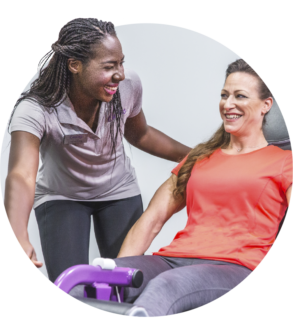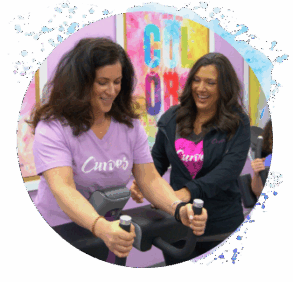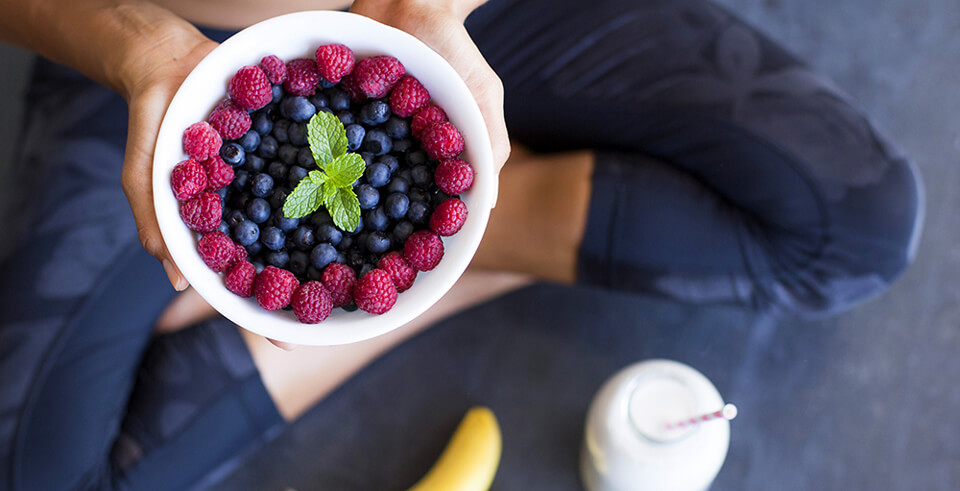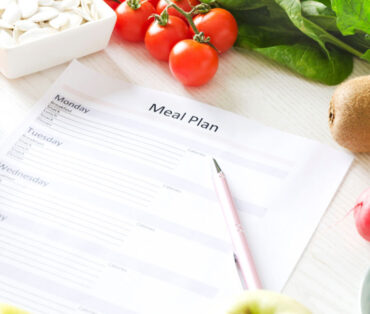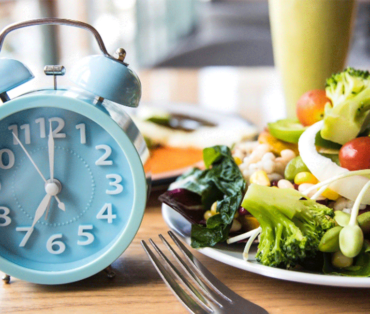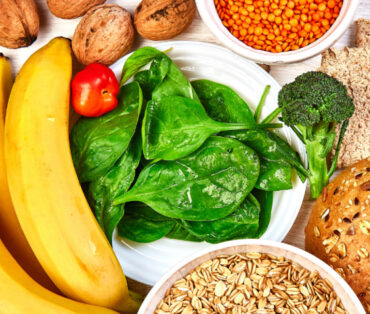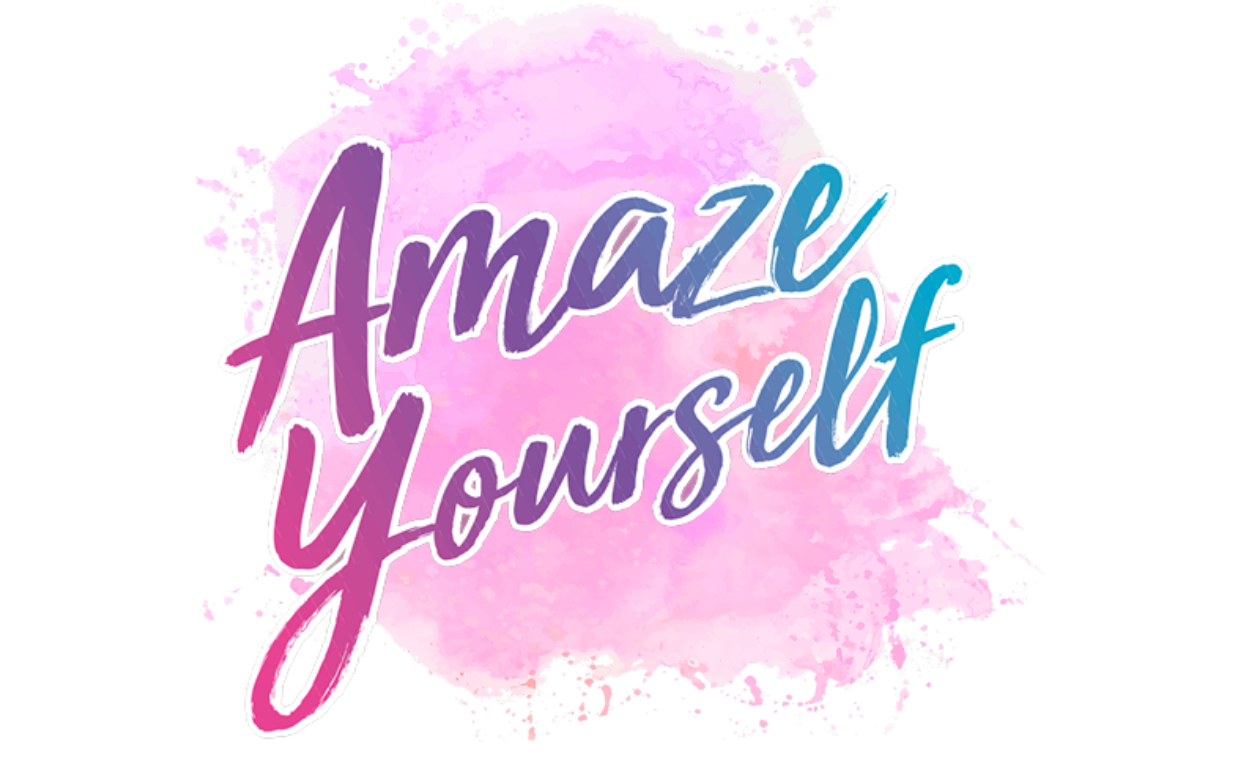Nutrition Tips After 40
If you’re like many women, your 20s didn’t mark your best nutrition years. Between college, starting a career, or trying to save money, healthful eating likely took a back seat. In your 30s, you may have been focused on healthful eating during pregnancy and breastfeeding. Now that you’re in your 40s or beyond, it’s time to focus on a healthy diet plan for YOU. Whether you are losing weight after 40 or just aiming for good health, nutrition is more important than ever in middle age. Starting at about the age of 40, women lose about 8 percent of their muscle1 per decade, which slows down the metabolism. Plus, good nutrition helps stave off disease and gives you the fuel you need for your best workout. For all these reasons, now is as good a time as any for you to pay close attention to a healthy diet plan.
Here are some healthy eating tips:
Get your nutrition basics
It was important when you were four, and it’s just as important when you’re 44. As a middle-aged woman, you need protein, carbohydrates, healthy fats, vitamins and minerals3. For carbs, go for fruits, vegetables, and whole grains. And make sure most of your fat comes from healthful, monounsaturated sources, such as oily fish, avocados, nuts and seeds.
More specifically, aim to do the following:
• Get less than 10 percent of your daily calories from added sugars in desserts, processed foods, and sugary drinks.
• Eat a rainbow of fruits and vegetables, including dark green, red, yellow, and orange.
• Aim to get at least half of your grains from whole grains.
• Consume protein with every meal. Healthy sources include lean meats, such as chicken, seafood, eggs, nuts, seeds, beans, peas, and soy.
• Use only monounsaturated oils4, such as olive oil, peanut oil, canola oil, and sesame oil. No more than 10 percent of your fats should come from animal sources (saturated fat).
• Enjoy no more than one alcoholic beverage per day.
• Consume less than 2,300 milligrams of sodium daily.
• Aim for at least 25 grams of dietary fiber per day. Good sources include berries, whole grains, and nuts.
Jump start your metabolism
The inevitable slowing of your metabolism as you get older isn’t totally out of your control. There are a few things you can do to try to speed it up:
• Exercise regularly with a full body workout. To lose weight, you must burn more calories than you take in.
• Drink cold water. In one study5, people who drank ice water instead of room temperature water experienced a 30% boost in their metabolisms.
• Eat breakfast every day. According to recent research6 published in the Journal of Physiology, regularly eating breakfast helps your fat cells burn calories more effectively.
• Spice things up. Eating spicy food can rev up your metabolism. In one study7 done at Purdue University, people burned more calories and had less of an appetite after eating a spicy red pepper.
Consume more calcium
Your levels of the female hormone estrogen decrease as you get older, making it harder to absorb calcium. As such, women in their 40s should aim for 1,000 milligrams of calcium a day, and women in their 50s should go for 1,200 milligrams. This equals about three to four servings of calcium-rich foods per day. Good food sources include low-fat dairy products, such as milk, yogurt, and cheese; fortified cereals, and plant-based milks (almond and soy); and dark, leafy green vegetables. A weight-bearing whole body workout like the Curves Circuit will also help keep your bones healthy and strong.
Eat early
The best time to eat is earlier in the day, when you have several hours left to burn the calories with a walk or gym workout. In a 2017 study8 done at the University of Pennsylvania, researchers looked at two groups that ate the same number of calories. They found those who ate later (between noon and 11 pm) were more likely to weigh more and have higher cholesterol and insulin levels than the participants who ate most of their calories earlier in the day.
Pump yourself up with protein
No matter your exercise plan, to get your best workout in your 40s and beyond, you must eat protein9. To fight back against age-related muscle loss, protein coupled with strength training helps you build and preserve your muscle mass. Make sure to get a little protein in everything you eat, including snacks. Good protein-rich snacks include nuts, cheese, hummus, or seeds. For meals, try to eat at least 30 grams of protein at each sitting, which equals four ounces of chicken, fish, lean meat, lentils, beans, or soy.
Fill up on fish
As you get into middle age, your risk for heart diseases rises. To help reduce that risk, eat foods rich in omega-3 fatty acids, such as oily fish10. Salmon, sardines, mackerel, trout, herring, and other fatty fish contain the omega-3 fatty acids EPA and DHA, which have been shown to both prevent heart disease10 and lower risk of a cardiac event. Aim for two servings of fatty fish per week for maximum heart health benefits.
Snack wisely
After age 403, lower levels of estrogen cause your insulin level to rise. Insulin is the hormone that helps your body process sugar. At the same time, your thyroid hormone levels go down. This combination increases hunger and makes you crave sugary, processed foods. In the name of your healthy eating plan or weight loss eating plan—or both!—go for snacks with fewer calories that still fill you up. Good options include berries, carrot sticks, raw cruciferous vegetables, such as cauliflower and broccoli, and high fiber whole grains.
No matter your age, the best way to shed pounds or maintain a healthy weight is with the combination of a healthy diet and regular workout plan. Include both as part of your daily routine and you’ll spend your life as your healthiest, happiest you!
**The information contained above is presented in summary form only and intended to provide broad consumer understanding and knowledge of various healthcare topics. It should not be used in place of a visit, call, consultation or advice of your doctor or other healthcare provider. You should discuss any dietary changes or supplement usage with your doctor, and should not discontinue any prescription medications without first consulting your doctor.
1U.S. National Library of Medicine
2Havard School of Public Health
3American Academy of Family Physicians
4American Heart Association, Inc
5U.S. National Library of Medicine
10U.S. National Library of Medicine

